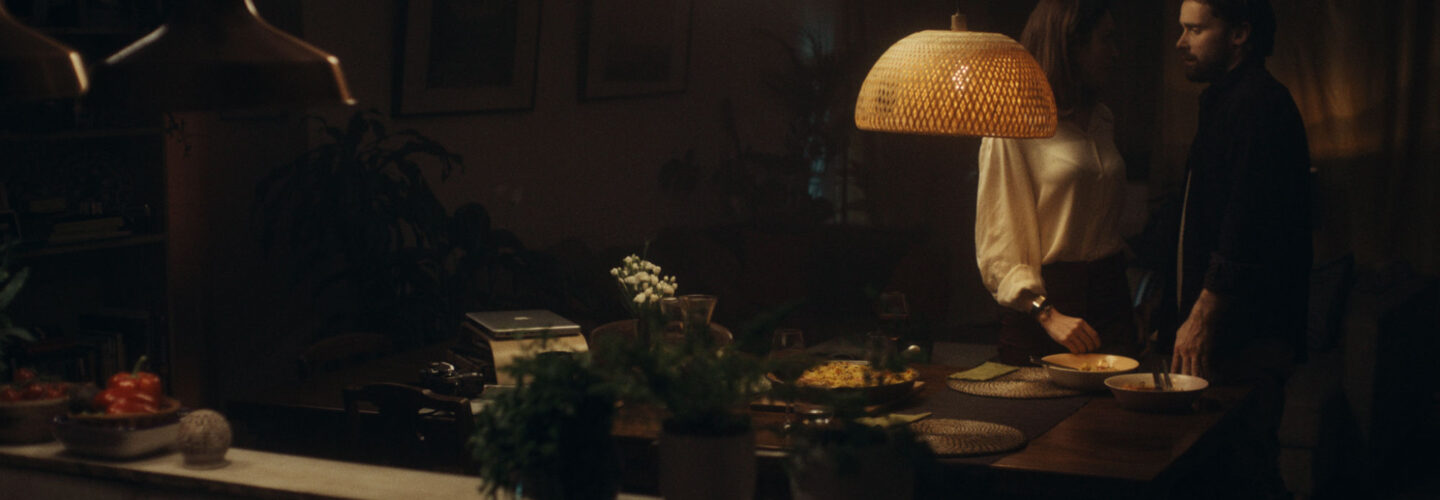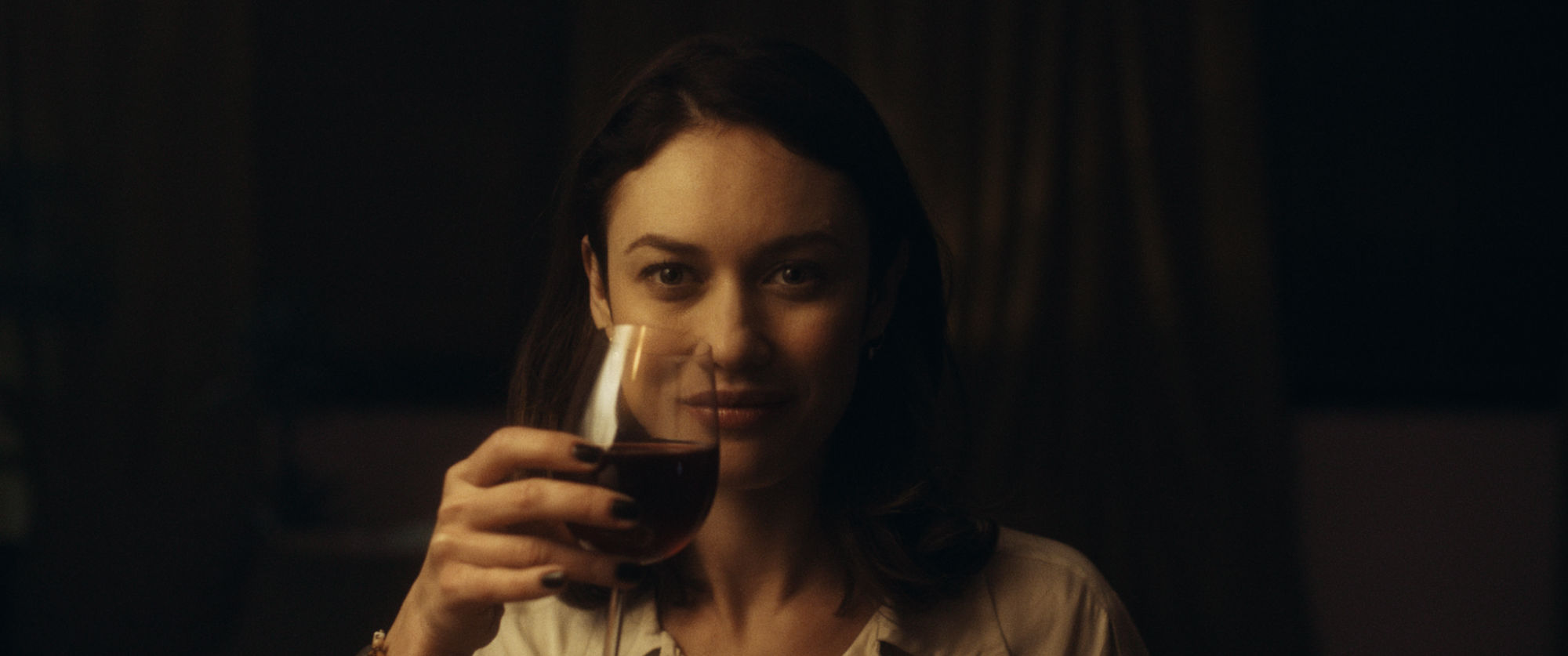
Dylan (Christian Cooke) and Reyes (Olga Kurylenko) sit down for dinner to celebrate their five year anniversary. Toasting to an ostensibly healthy relationship, a litany of unexpressed desires rise to the surface. From the banal to the profound, the sexy to the disgusting, Everything You Didn’t Say takes a wry, comic look at the difficulties inherent in any faithful relationship. To celebrate the film’s premiere on DN, we sat down with Director Charlie Reader who described his working process, the perils of monogamy and successfully maintaining a balance between fantasy and reality.
What was the inspiration behind the film?
At first I intended to make a dramatic film. I’ve always been quite interested in the concept of monogamy. I wanted to go down the route of the conflict that is inherently baked into monogamy and explore the implications of that.
I didn’t want to do a film that was about any sort of ‘failed’ relationship, just a relationship that functions and is comfortable but still has its flaws. After all, maybe that’s the default setting for relationships. At first I thought I was writing a drama film but then it became a comedy. I think that’s the cycle of life — you think it’s drama but it becomes a comedy.
I talked people in mostly functioning relationships into admitting their insecurities, doubts and desires.
Your co-writer is Peter Fellows (Veep,Death of Stalin). How did this collaboration come about?
Pete and I worked together when I was at university. We co-wrote my graduate film together. Then we stayed in touch over the years. When I started writing this, I wanted someone to work with, so I thought I’d reach out to him. He loved the idea and the partnership was renewed. He’s brought a lot more than just screenwriting to the film, and we’ve continued working together ever since.
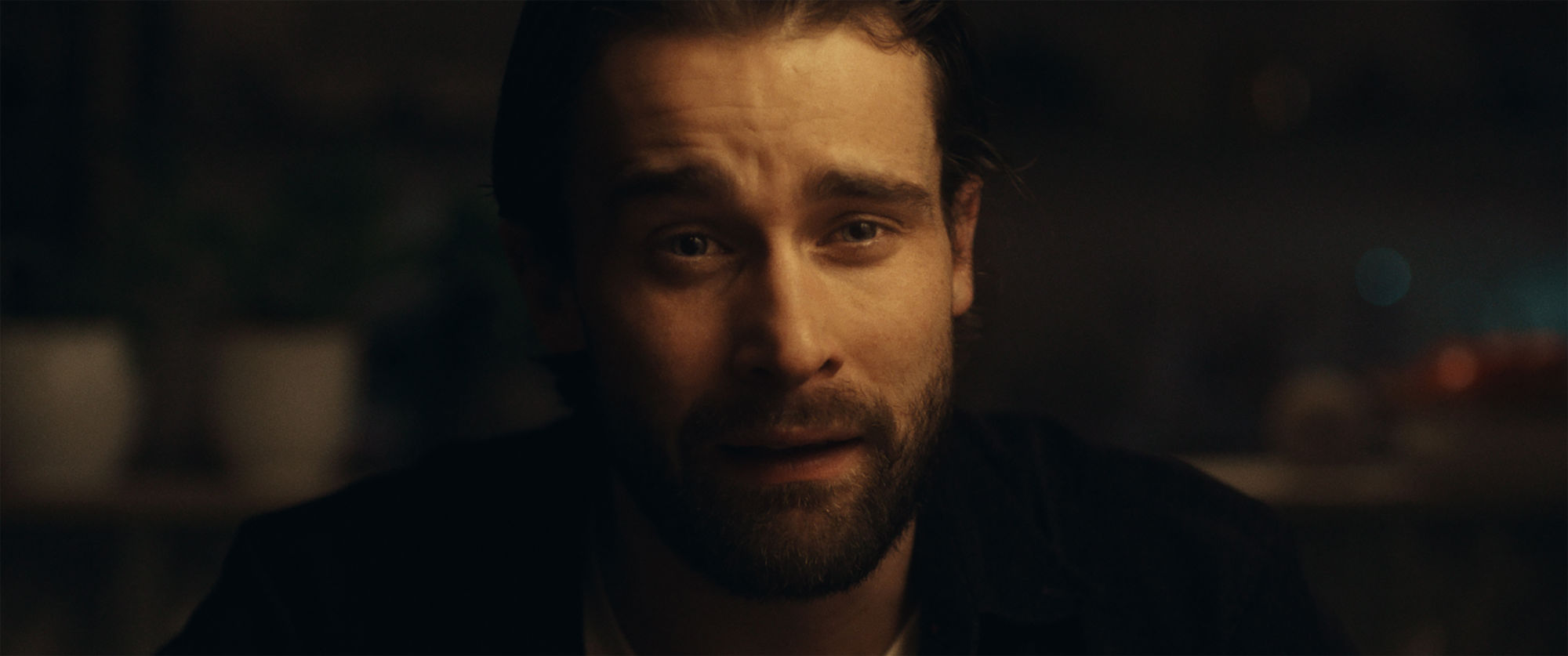
How much research did you do into these types of unexpressed desires?
I talked people in mostly functioning relationships into admitting their insecurities, doubts and desires. That was quite cool. I think people were naturally scared to tell me their secrets. I think they also found some pleasure in it. Then I took those admissions and worked in my own thoughts so I wasn’t just telling someone else’s story. Then I tried to make it work within a film format and took all my notes to Pete. We spent a lot of time, and had a lot of fun, working out the best way to mould these confessions and ideas into a singular story that felt true to our characters and their backgrounds, but that also felt encompassing of many peoples different stories.

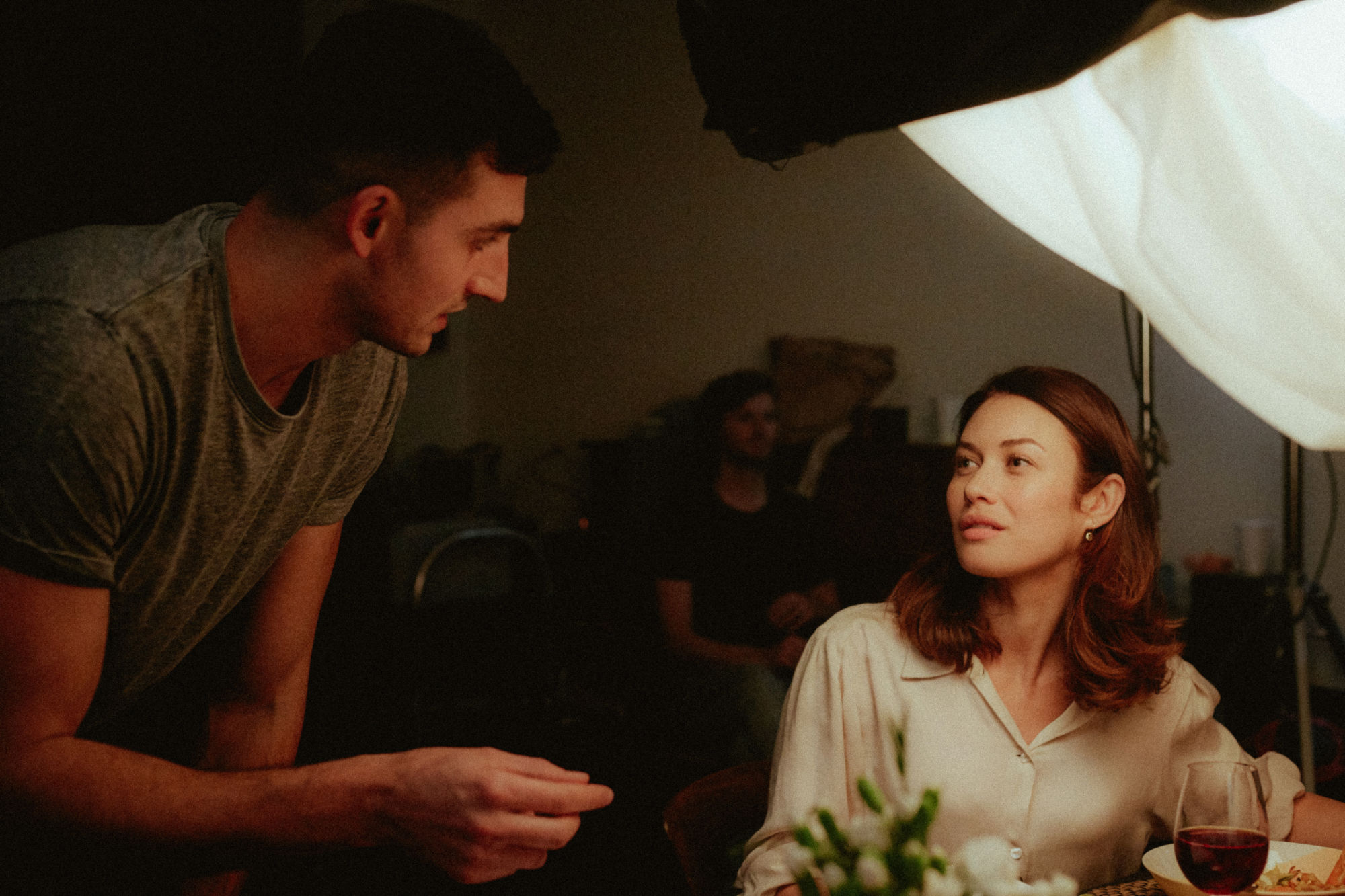

How did you get Christian Cooke and Olga Kurylenko on board?
While writing the script we thought that Olga would be a good choice to play Reyes. We had the opportunity to put the script in front of her while Pete was working on The Death of Stalin. We managed to get it to her and she read it, liked it and came on board right away. Our Casting Director Louise Collins suggested Christian Cooke. I had a meeting with him and he came on board. He’d worked with Olga on a US TV Series [Magic City] before so the chemistry was already there and we could hit the ground running.
It cuts between their thoughts and reality very legibly. The situation is never confusing. How did you go about making sure that we are aware of these differences?
There were a few ways we wanted to try and show that. It came down to something as simple as cutting wide for reality; a simple thing to do. For the inner dialogue, I wanted all the shots to be quite ethereal and tight and pick up on smaller details. So that’s its own visual world — when it cuts out there’s that moment of relief. The music was important too. I worked with genius Composer Andrea Boccadoro and we went through each line of the dialogue together. We wanted music to be almost a third character that was spontaneous and reactive to the dialogue and I think Andrea did an amazing job achieving that.


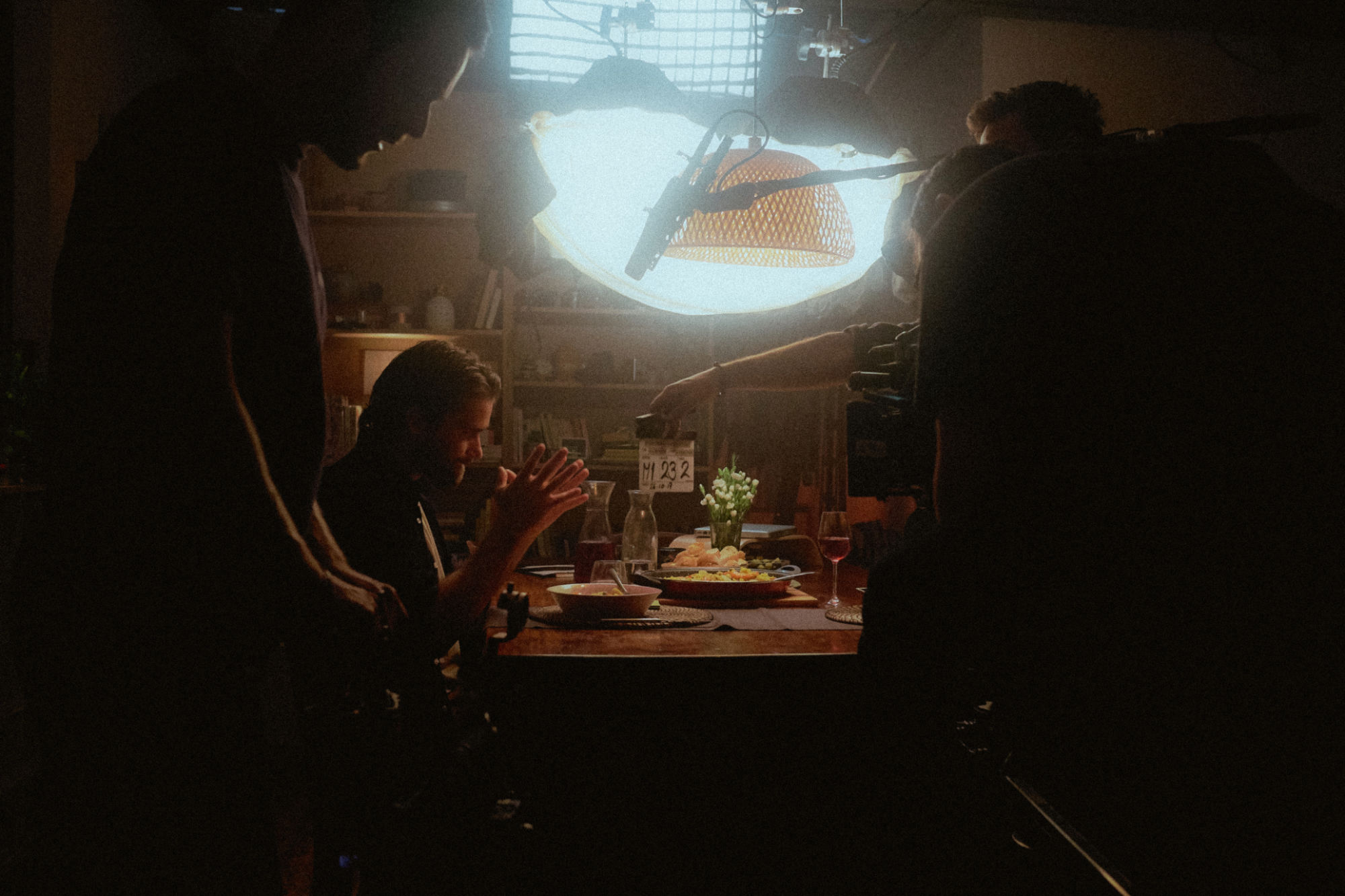
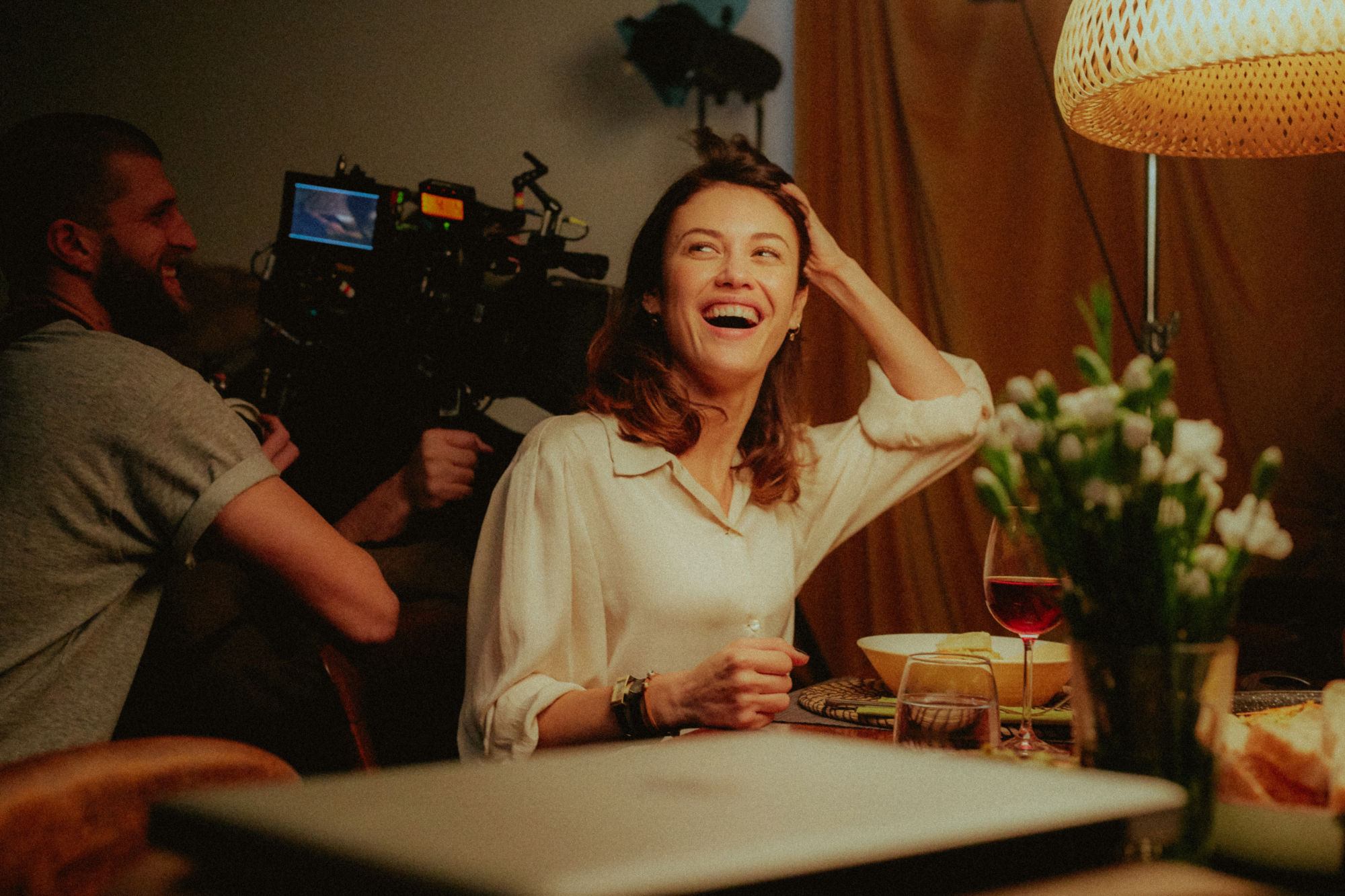


The sound design is very evocative as well. When they talk about children, for example, one can hear them subtly in the background…
With most of my projects I like to create a parallel sonic world that isn’t just the dialogue. Most of the film is internal dialogue, so I wanted to enforce that with sounds of fleeting memories and sensations that are swirling around in their minds. I worked with a team at Goldcrest and had a lot of fun building that web of sounds and experimenting with how subtle we could go. There are even some sounds of a guy wanking! But it’s all very subtle so you might miss some the first time!
Most of the film is internal dialogue, so I wanted to enforce that with sounds of fleeting memories and sensations that are swirling around in their minds.
My takeaway message is that couples need to be more open with each other, but perhaps not ‘too’ honest. Is there a fine balance all couples must take?
Yeah, it goes back to the whole monogamy thing. It can be lovely when you have a supportive partner or it can be difficult. And it goes back and forth sometimes. It’s about knowing when you need to be honest or when you need to bite your lip. The main message I wanted to get across perhaps is that communication is key. This is what the characters lacked: if they just spoke about it, things might be better. It’s about being able to recognise the need to do that in a relationship.
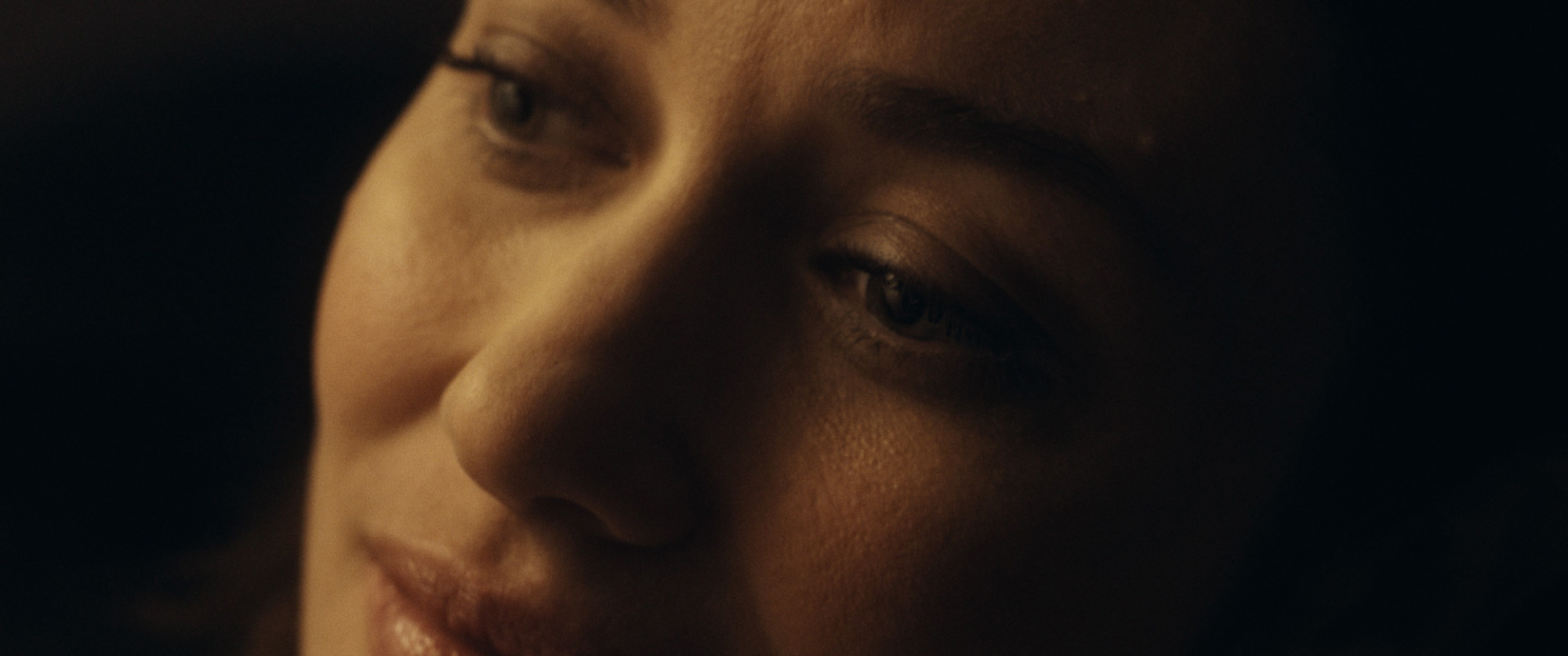
You say that it’s influenced by Eyes Wide Shut?
A couple of days before I started I thought “I need to ground this in something and take references from other places”. I did this for a couple of days watching films at home in my pyjamas and one of those was Eyes Wide Shut. It’s one of my favourite films because it deals with this idea of monogamy and its complexities. In Eyes Wide Shut, Nicole Kidman’s character dreams of cheating on her husband with a sailor. That in itself is enough to create a massive fault-line within their marriage yet nothing has really taken place. That was very much an inspiration for the film. Is it fundamentally wrong for one to have these thoughts? Or is it completely normal, even within a loving relationship? Just thoughts that come and go… Moments of doubt, moments of desire, but taken through more of a comedy route.
What’s next? I hear you’re working on a feature…
Pete and I are working a feature now. It’s very different, and unrelated to this film. We’re in the writing stage of it, but it’s a coming-of-age set against a political backdrop. And I’ve just finished an experimental film, I’m writing another short which is quite different and just finished a music video as well.

